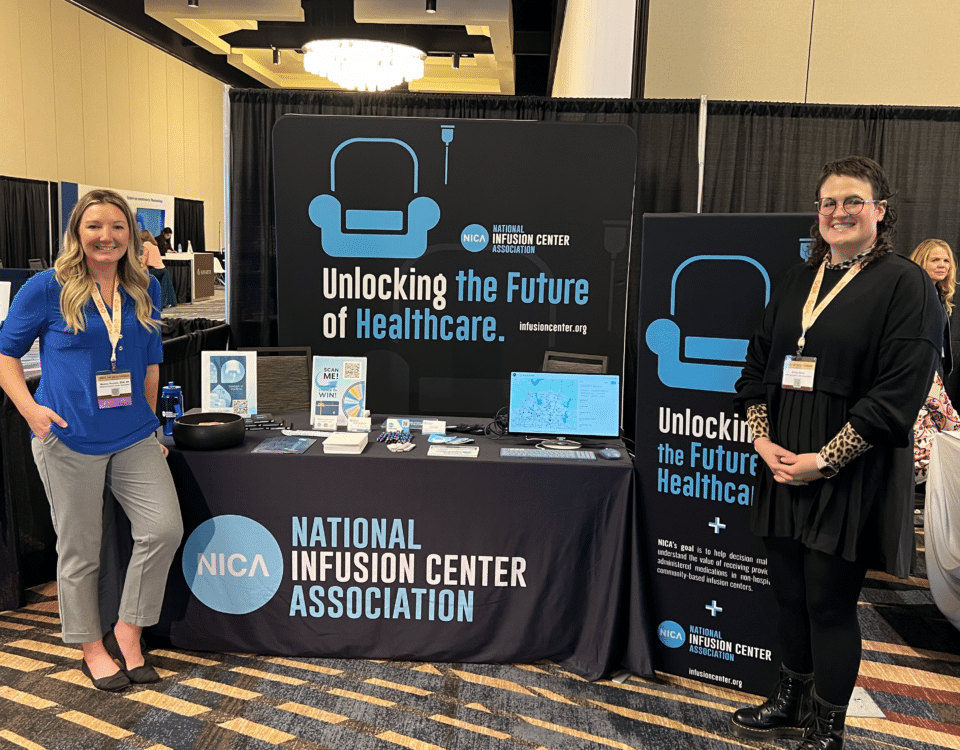By Wakaba Tessier, Partner, Quarles & Brady, LLC
& Jake Pallota, Associate, Quarles & Brady, LLC
Understanding the Corporate Practice Of Medicine
The Corporate Practice of Medicine (“CPOM”) doctrine is one of the relatively significant legal issues to consider for corporate entities seeking to provide healthcare services. As the name suggests, this doctrine has one primary goal—to ensure that corporate interests do not influence how professional healthcare services are provided to patients. In general, CPOM laws and regulations are commonly understood in the context of the physician-patient relationship. However, as this article will discuss, its applicability extends to various healthcare entities. Given this breadth in applicability, it is important to be aware of the varying ways in which the doctrine is being enforced and how entities providing ambulatory infusion services might be implicated.
One of the more prominent ways CPOM regulations mitigate the corporate influence on healthcare entities occurs at the ownership level. CPOM regulations are typically enforced in a way that limits the ability of non-licensed medical professionals to have ownership interests in certain medical practices, which may include ambulatory infusion centers. The thought process behind this constraint can generally be attributable to the perceived conflict of interests that arise with non-licensed ownership of healthcare entities. Proponents of the CPOM doctrine argue that substantial non-licensed ownership would inherently have an adverse impact on patients. This belief stems typically from the idea that corporate ownership would be inclined to place its interests above those of the patient. There are many conceivable ways in which this could take place, such as the requesting of unnecessary tests as a way to increase revenue. Opponents of the CPOM doctrine consider this perspective to be unwarranted and outdated. However, state-imposed CPOM regulations often have an intentional or incidental effect on addressing these concerns.
With that in mind, it is important to note that, in general, entities providing ambulatory infusion services are no exception to these restrictions. In states that implement regulations of this kind, ambulatory infusion entities will likely be subject to these ownership limitations and must ensure that they remain compliant with state laws. As with many legal doctrines of this nature, the strength with which CPOM prohibitions are enforced varies greatly by state. While some states have enacted explicit statutory prohibitions against CPOM, others have yet to implement any sort of restriction against the practice. With that being the case, it is crucial providers be able to recognize any state-imposed CPOM restrictions that might be applicable to their practices.
As a provider, one of the easiest ways to achieve this goal is to begin familiarizing yourself with the sort of statutory and regulatory language that could potentially implicate CPOM restrictions. For example, observe the following language from Indiana, which has one of the more straightforward implementations of the doctrine:
“It is unlawful for any person to practice medicine or osteopathic medicine in this state without holding a license or permit to do so, as provided in this article.” Ind. Code Ann. § 25-22.5-8-1.
Related Indiana laws go on to further characterize the “practice of medicine or osteopathic medicine” as including various services such as diagnosing, treating, or preventing any condition of human being. Ind. Code Ann. § 25-22.5-1-1.1(a)(1)(A). The term also encompasses the suggestion, recommendation, or prescription of any form of treatment. Ind. Code Ann. § 25-22.5-1-1.1(a)(1)(B). Thus, with the apparent applicability of these restrictions being so vast, it seems evident that the intent of these Indiana statutes was to implement broad CPOM prohibitions that prevent non-medical entities from gaining influence over licensed healthcare professionals.
Alternatively, there are several states that address CPOM less directly and choose not to go as far as Indiana. For example, Arizona does not have any clear-cut statutory or regulatory prohibitions related to the CPOM doctrine. Instead, restrictions against the practice seem to stem from long-standing Arizona Supreme Court precedent. Nearly a century ago, the court determined that corporations did not “possess the necessary moral and intellectual qualities” to practice medicine. Funk Jewelry Co. v. State, 46 Ariz. 348, 350 (Nov. 1935). Accordingly, corporations may only engage in the practice of medicine through individuals licensed to practice in the state, as enumerated by Ariz. Rev. Stat. § 10-3301. Outside of these provisions, however, Arizona lacks the sort of unambiguous guidance pertaining to CPOM that can be found in other states.
As previously mentioned, there are a handful of states that have not implemented any sort of explicit ban on CPOM to date. While these states still likely have regulations with some sort of inadvertent CPOM implications, they have yet to directly address their enforcement in the context of medical practices.
While seemingly straightforward in concept, the CPOM doctrine is one of significant importance that warrants close examination. Although not traditionally understood as being implemented for the regulating of home infusion agencies, the breadth in scope of the doctrine as it is applied across the states requires such entities to give careful consideration to the specific laws that govern them.
About the Authors
Authors Wakaba Tessier and Jake Pallota are trusted NICA partners focused on risk mitigation for infusion centers. Since 1892, Quarles has provided legal solutions to a wide range of clients on a national stage. Led today by a dynamic and diverse team of lawyers and business professionals, Quarles is a multidisciplinary Am Law 200 firm with approximately 550 attorneys practicing at the top of the profession in Chicago, Denver, Indianapolis, Madison, Milwaukee, Minneapolis, Naples, Phoenix, St. Louis, San Diego, Tampa, Tucson, and Washington, D.C.
Learn more about Quarles at www.quarles.com
About the National Infusion Center Association
NICA is dedicated to ensuring that the nation’s infusion centers remain a safe, more efficient, and more cost-effective alternative to hospital settings for consistent, high-quality care.
Infusion providers have a vested interest in the sustainability of the infusion delivery channel and its ability to serve vulnerable patient populations. NICA Provider Members have a voice and a seat at the table to inform NICA’s activities and the opportunity to remain highly engaged in the expansion and optimization of the infusion industry. Learn more about becoming a NICA member here: https://infusioncenter.org/join-NICA
Is your organization interested in becoming a featured subject matter expert on The Infusion Blog? Email [email protected] to inquire about opportunities for participation.





